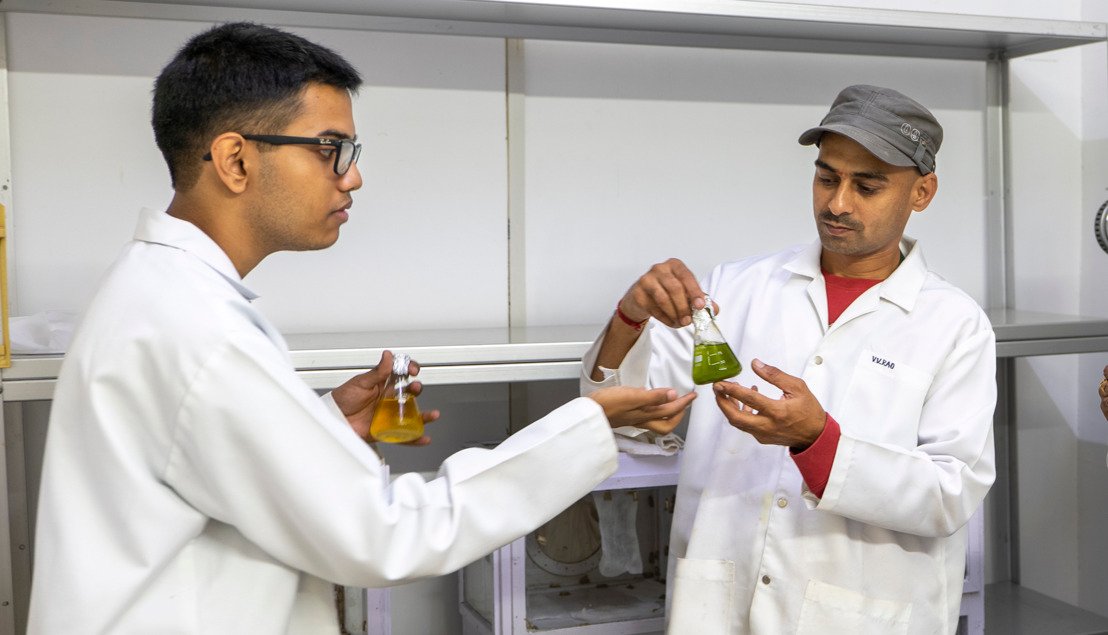Monday, 2 February 2026

Won the third prize and US $1000 for developing a cost-effective bio-insecticide from the leaves of bullock’s heart at International Science and Engineering Fair in Atlanta, USA
Sarvesh Prabhu, a 17-year-old research intern at the International Crops Research Institute for the Semi-Arid Tropics (ICRISAT), represented India at the International Science and Engineering Fair in Atlanta, USA and won the third prize and US $1000 in the biochemistry category for developing a cost-effective bio-insecticide from the leaves of bullock’s heart (Annona reticulata) popularly known as ramphal.
The Department of Science and Technology, Government of India, also awarded him the first prize and Rs100,000 (US $1224) as part of the Council of Scientific and Industrial Research (CSIR) Innovation Award for School Children.
The high school student from FIITJEE Junior College, Hyderabad, conducted research experiments at the entomology unit at ICRISAT headquarters in India early this year, and the outcome of his research was presented at the world’s largest pre-college science fair in Atlanta, USA.
The project titled, ‘A novel study of bio-insecticidal properties of Annona reticulata’ showcased the bio-insecticidal properties of the leaves of the plant. Traditionally, the extracts of various parts of this plant have been used to treat diseases like dysentery and pediculosis. The study revealed that extracts from its leaves could be effective against three disastrous pests, with the mortality rate ranging from 78-88 per cent.
ICRISAT’s Deputy Director General-Research Dr Arvind Kumar said, “The Institute encourages participation of youth in agricultural research and has nurtured over 7000 interns and research scholars since its establishment by offering them access to world-class facilities and multidisciplinary mentoring.”
“ICRISAT always looks forward to mentoring young researchers like Sarvesh Prabhu and supporting them in their endeavors for building a sustainable food system for the future generation,” said Dr Sean Mayes, Research Program Director, Accelerated Crop Improvement, ICRISAT.
Addressing the pest problem
Pod borer (Helicoverpa armigera) alone may cause losses of more than US $300 million annually. Green peach aphid (Myzus persicae) causes 38-42 per cent yield loss in various crops and fall armyworm (Spodoptera frugiperda) causes 21-53 per cent losses in the absence of pest management. These are the most common pests found in legumes and cereal crops.
“We maintain five insect cultures throughout the year, making it a one-of-its-kind research facility in India and supporting/providing insect cultures to many Indian Council of Agricultural Research (ICAR) institutes, state agricultural universities, and private companies for their research activities on toxicology and host plant resistance,” said Dr Jagdish Jaba, Scientist- Entomology, Crop Protection and Seed Health, ICRISAT.